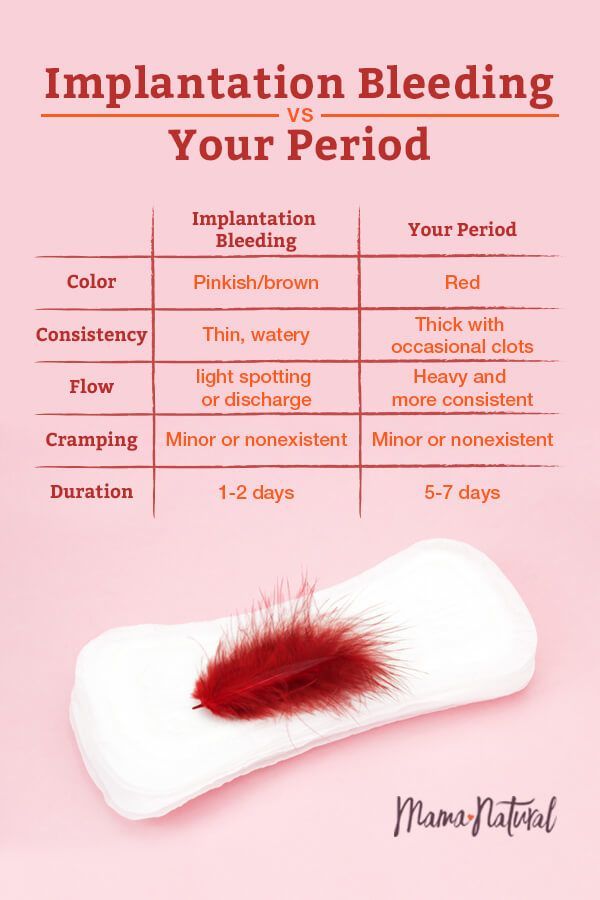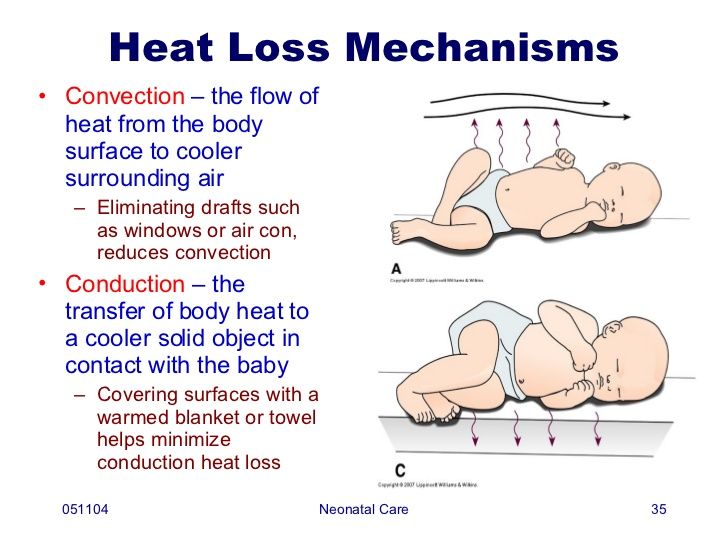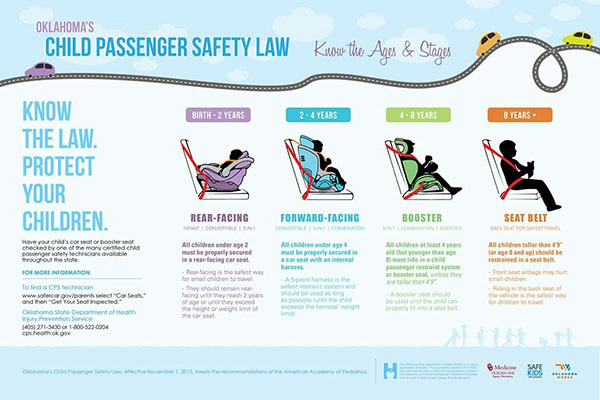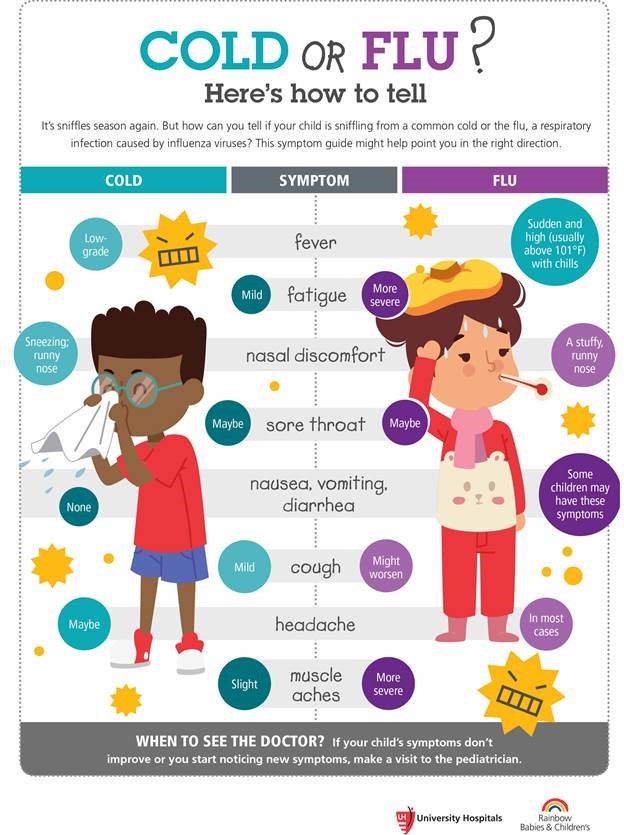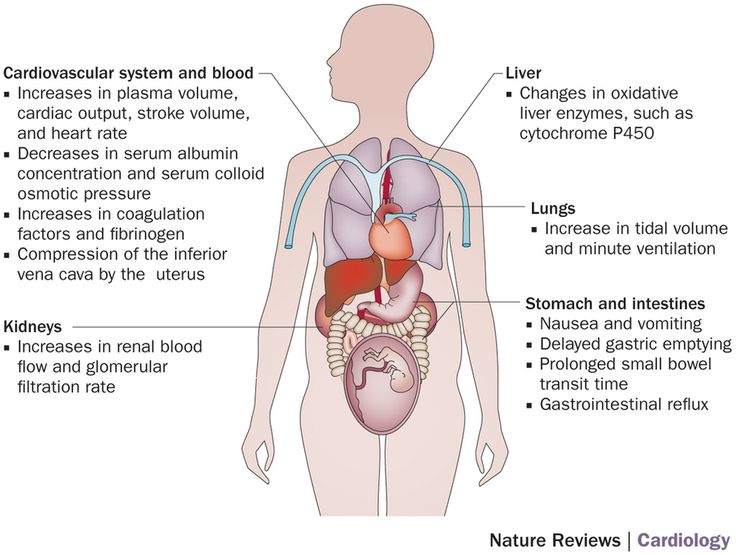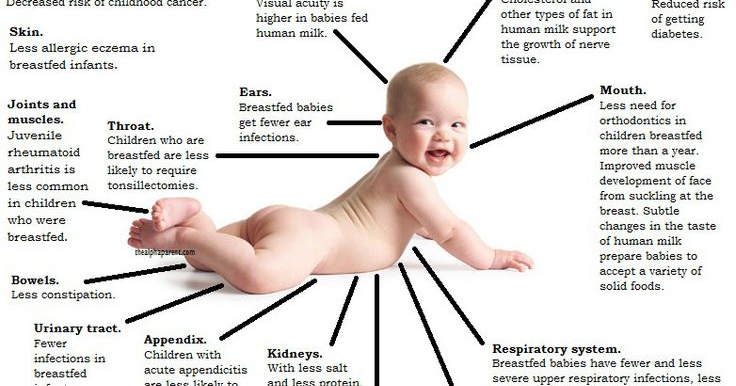Does pregnancy cause cramping
When Should Cramps During Pregnancy Be Worrisome?
New moms to be may feel a jolt of fear when they experience cramps during pregnancy. You might have it in your head that you’re in the middle of a miscarriage. In reality, most cramping during pregnancy is actually normal and is something that occurs during all three trimesters. It’s important to know why they happen.
Normal Cramps in Early Pregnancy
During your first trimester, you experience cramps as your body prepares for the pregnancy. You may initially experience cramping in your lower abdomen or lower back even before you know you’re pregnant. This is due to implantation, which is the process of the fertilized egg implanting in the uterus. You may feel a small twinge or sharper cramps that may double you over at times. After you know you’re pregnant, cramping is due to your uterus growing and expanding to accommodate your growing baby. It’s perfectly normal and happens to all women. Cramps often feel similar to your normal menstrual cramps. Once you pass your first trimester, you might experience occasional cramping. It’s important to remember that the uterus is a muscle, which means it can contract and cause pain or discomfort. The same can happen when you have gas, constipation, bloating, or even a full bladder.
Normal Cramps in Later Pregnancy
You may experience less cramping in your second trimester compared with your first and third trimesters. Generally, moms who are pregnant with multiple children experience more cramping during the second trimester compared to those who are having a single baby. This typically occurs as the body is making more room to accommodate the babies. In women carrying single babies, this occurs in the third trimester.
Abnormal Cramps During Pregnancy
Any cramping that seems out of the ordinary, such as cramps that feel severe and that don’t go away, should be reported to your doctor. It’s possible that you’re perfectly fine, but it’s important to be absolutely sure just to be safe.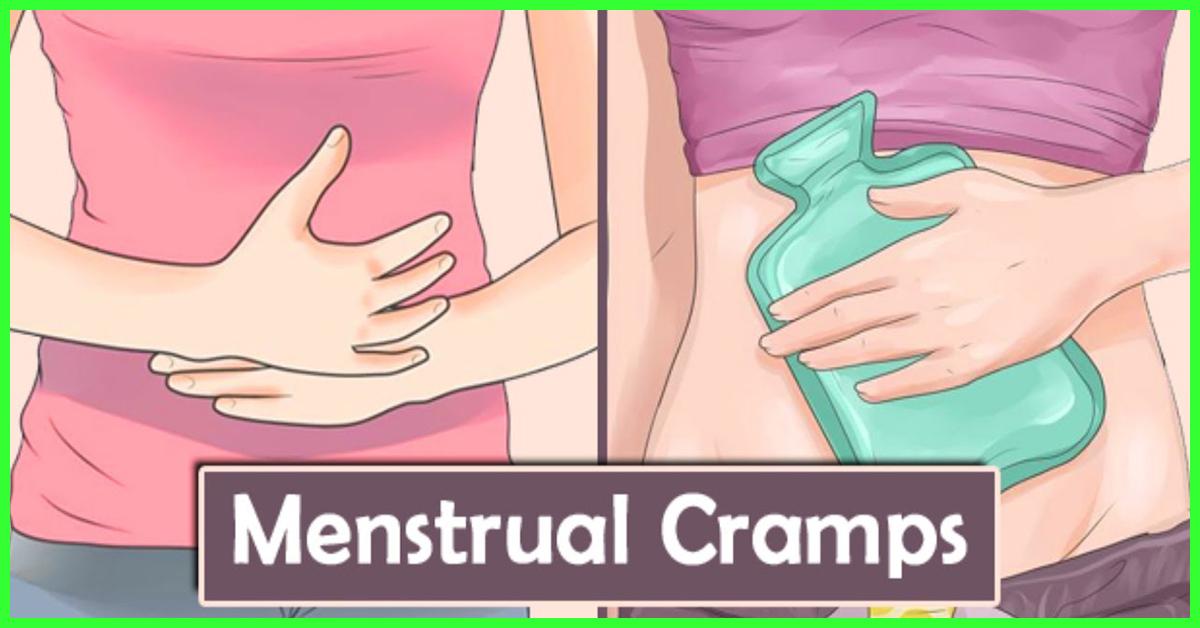 Sometimes, severe cramping can signify an ectopic pregnancy, which occurs when the fertilized egg implants in one of the fallopian tubes instead of the uterus. Ectopic pregnancy is a very serious, dangerous condition that requires immediate surgery as the pregnancy cannot be sustained. It can also threaten the mom’s health if the fallopian tube ruptures. Cramping on one side should also be reported to your doctor as it might mean an ectopic pregnancy. Cramping accompanied by vaginal bleeding should also be immediately reported to the doctor. It might mean you’re experiencing a miscarriage. The doctor can diagnose it or rule it out by ordering an ultrasound or hCG blood test. If you’re concerned about cramps during pregnancy, contact WFMC Health to schedule an in-office or telehealth appointment.
Sometimes, severe cramping can signify an ectopic pregnancy, which occurs when the fertilized egg implants in one of the fallopian tubes instead of the uterus. Ectopic pregnancy is a very serious, dangerous condition that requires immediate surgery as the pregnancy cannot be sustained. It can also threaten the mom’s health if the fallopian tube ruptures. Cramping on one side should also be reported to your doctor as it might mean an ectopic pregnancy. Cramping accompanied by vaginal bleeding should also be immediately reported to the doctor. It might mean you’re experiencing a miscarriage. The doctor can diagnose it or rule it out by ordering an ultrasound or hCG blood test. If you’re concerned about cramps during pregnancy, contact WFMC Health to schedule an in-office or telehealth appointment.
Do you have more questions about pregnancy cramps in Salem Oregon? Talk to our staff at WFMC Health or become a new patient today!
Filed Under: Maternity Health Care
WFMC
Pregnancy Cramps: What They Mean and When to Worry
When you’re pregnant, your body undergoes many changes as it makes room for your little one (or two or more!). While some of these changes may be no big whoop, others, particularly things like cramping, can have you quickly searching Google for their causes.
While some of these changes may be no big whoop, others, particularly things like cramping, can have you quickly searching Google for their causes.
While some mild pregnancy cramps are a normal symptom of your ever-expanding body, other cramps could indicate a serious problem. Pregnancy cramps can give many women anxiety, so it’s important to know the common reasons for their occurrence and what you should do about them.
We asked Srijaya Soujanya Nalla, MD, an OBGYN at Banner Health Clinic in Loveland, CO, to help explain the normal causes for cramping, abnormal causes and treatment recommendations for both.
[However, if you’re experiencing severe cramping with or without bleeding, stop reading this article and call your doctor immediately.]
What’s considered normal cramping during pregnancy?
“Early on in your pregnancy, it’s natural to feel some mild cramping in your lower abdomen at infrequent times as your body prepares for your growing baby,” Dr.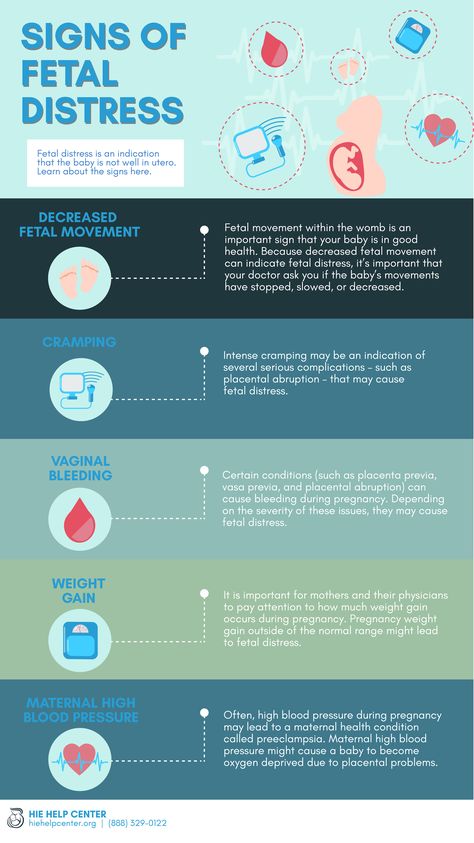 Nalla said.
Nalla said.
As your belly grows, so does your uterus. This may cause you to feel some slight pulling, tugging or stretching similar to menstrual cramps.
“Later in your pregnancy, you may experience some mild lower abdominal discomfort due to the tightening of your uterus. These are normal as long as they occur in irregular intervals and subside on their own,” Dr. Nalla said. “A common cause later in pregnancy is due to round ligament pain, a muscle that supports the uterus. As it stretches, it can cause some mild aches and pains.”
Other causes for mild cramping include:
- Implantation bleeding
- Gas, bloating and constipation
- Sex
- Exercise
- Braxton Hicks contractions
What should I do for mild cramping while pregnant?
Time your cramps to see how regular they are and how often you feel them. “As long as they don’t fall into the abnormal category, there are some things that you can do to make them better,” Dr.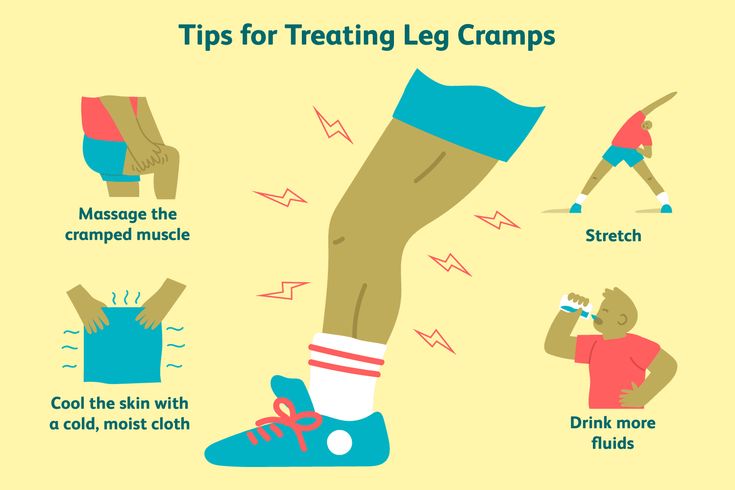 Nalla said. Some of these activities include:
Nalla said. Some of these activities include:
- Rest: Try to sit, lie down or change positions.
- Soak in the tub: Take a warm soak in the tub or a warm shower.
- Take some acetaminophen: Products like Tylenol are commonly used by pregnant women for pain and fever but talk to your health care provider first.
- Practice deep breathing: Use relaxation techniques such as meditation, yoga or controlled breathing.
- Stay hydrated: Pregnant women need 50 percent more water. Keep a bottle of water on hand wherever you go.
When should I be concerned about cramping during pregnancy?
While cramping can be common, there are some serious causes of abdominal pain you shouldn’t ignore.
“Any cramping that is severe in intensity, occurs at regular intervals and progressively gets worse with time is abnormal,” Dr. Nalla said. “In addition, any amount of cramping associated with vaginal bleeding, increased/watery vaginal discharge, or pelvic pressure is not normal either.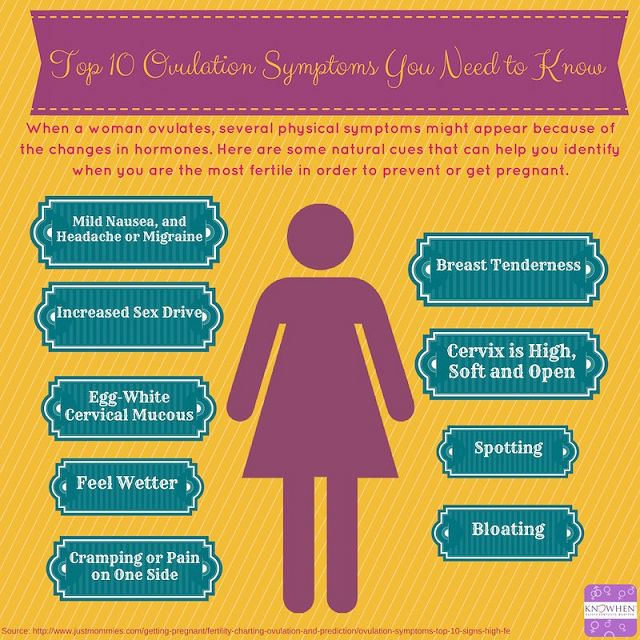 ”
”
Some causes for abnormal cramping may be due to:
- Ectopic pregnancy
- Miscarriage
- Preeclampsia
- Bladder infection or urinary tract infection
What should I do if I’m concerned about the cramping?
It’s normal to experience some mild cramping during pregnancy, but always speak with your health care provider if you are ever concerned or are experiencing the above warning symptoms.
“In some cases, an ultrasound can be done to help determine the cause for severe cramping,” Dr. Nalla said. “Sometimes severe cramping can be the first sign of an ectopic pregnancy or a miscarriage. Other times, it could be non-pregnancy related issues like a bladder infection or constipation which are quite common in pregnancy.”
When it comes to your health and the health of your baby, it’s better to err on the side of caution and talk to your health care provider.
You can find a Banner Health specialist near you by visiting bannerhealth.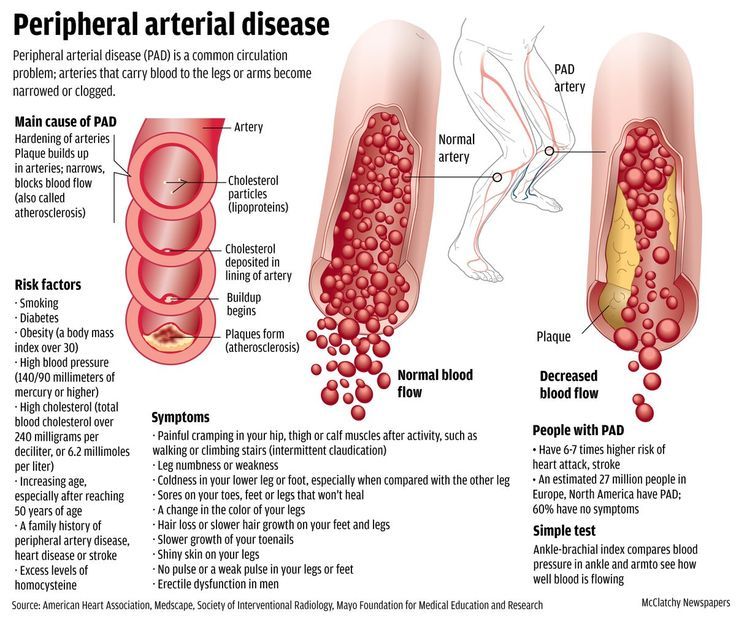 com or for general pregnancy-related questions, you can call the Banner Health Nurse Now at 844-259-9494 for free, 24/7 medical advice.
com or for general pregnancy-related questions, you can call the Banner Health Nurse Now at 844-259-9494 for free, 24/7 medical advice.
Related pregnancy articles:
- Is a Headache During Pregnancy Something to Worry About?
- If You’re Expecting and Your Hands and Feet Itch, It Could Be Cholestasis
- Expect the Unexpected: How Your Body Changes During Pregnancy
- Prenatal Screenings and Tests: What to Expect Every Trimester
- Driving While Pregnant: Common Questions Answered
Women's Health Pregnancy
Convulsions during pregnancy: treatment and prevention
Every woman at least once in her life has come across the concept of convulsions. This is especially unpleasant, and, unfortunately, not uncommon, the phenomenon manifests itself during pregnancy. Should I be scared or worried?
Pregnant women often experience convulsions at night when falling asleep or before waking up.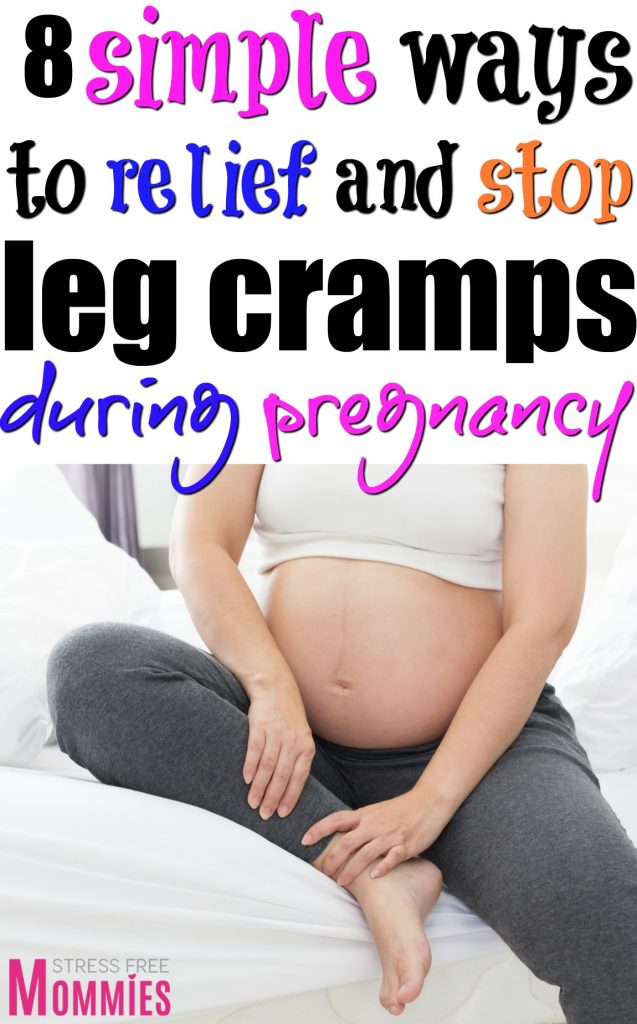 The sensations are so painful, strong and unbearable that they do not allow her to fully rest.
The sensations are so painful, strong and unbearable that they do not allow her to fully rest.
In the first trimester, the expectant mother suffers from convulsions against the background of early toxicosis due to a lack of healthy substances. But usually this phenomenon manifests itself in the second or third trimester due to the increased load on the woman's body and the likely nervous displacements.
Causes of sudden seizures during pregnancy
What are the sources of seizures in a pregnant woman and how to deal with them?
As already mentioned above, involuntary muscle contractions can lie in wait for a woman during any period of expectation of a baby. Accordingly, the causes of occurrence are different, they are united by one thing: there are failures and disorders in the body, ranging from a lack of vitamins and trace elements to complications.
According to experts, the main sources of unpleasant painful impulsive muscle contractions can be:
- Deficiency of trace elements such as calcium, potassium, magnesium and vitamin B6.
 What caused this deficit?
What caused this deficit? -
- Toxicosis, accompanied by profuse vomiting. Consequently, the female body is deprived of a large number of trace elements (most often in the first trimester of expecting a child).
- Uncontrolled use of diuretics.
- The fetus requires more needs for development (which is more in the middle of pregnancy).
- Improper and unbalanced diet, which leads to insufficient intake of nutrients into the body.
- The amount of hemoglobin decreases - that is, the protein that is responsible for delivering oxygen to all organs. During pregnancy, the health of the mother and child depends on the level of hemoglobin.
- If the expectant mother violates the diet, eats a lot of carbohydrates, is fond of sweets, eats rarely, but in large portions - all this can lead to a violation of blood sugar levels.
- Varicose veins, especially if the pregnant woman puts a lot of pressure on her legs.
- Uncountable consumption of caffeinated drinks by a woman.
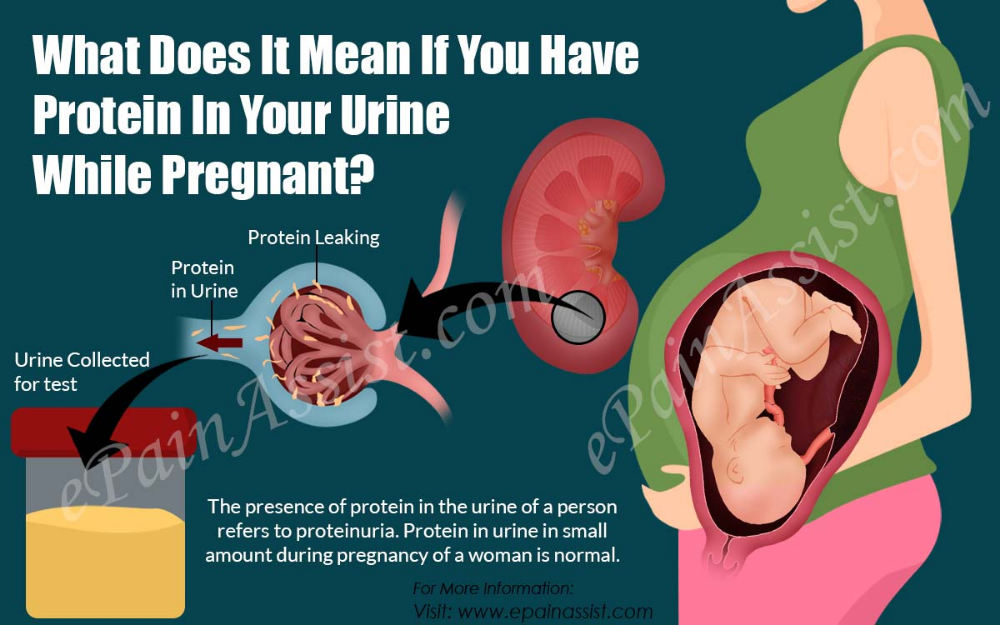 Such abuse is fraught with dehydration of the muscles, their tension. This may result in the development of seizures.
Such abuse is fraught with dehydration of the muscles, their tension. This may result in the development of seizures. - “Inferior vena cava syndrome” is a condition in which an enlarged uterus presses on the inferior vena cava. A significant additional load is provoked on the work of the heart, blood vessels, blood supply to the fetus, and a violation of the venous outflow from the legs. One result is the development of seizures. This condition occurs in the last term, especially when resting on the back or right side.
- All kinds of diseases and complications of pregnancy.
Leg cramps
Many expectant mothers, when talking to their gynecologist and talking about painful sensations, complain about spasms in the muscles of the legs, more precisely, cramps in the calf muscles. The time of occurrence of these unpleasant symptoms is either in the evening or in a dream, at night.
At night, the body rests, is at rest and relaxed. It is at such moments that women often wake up from the pain of cramps in the muscles of the legs.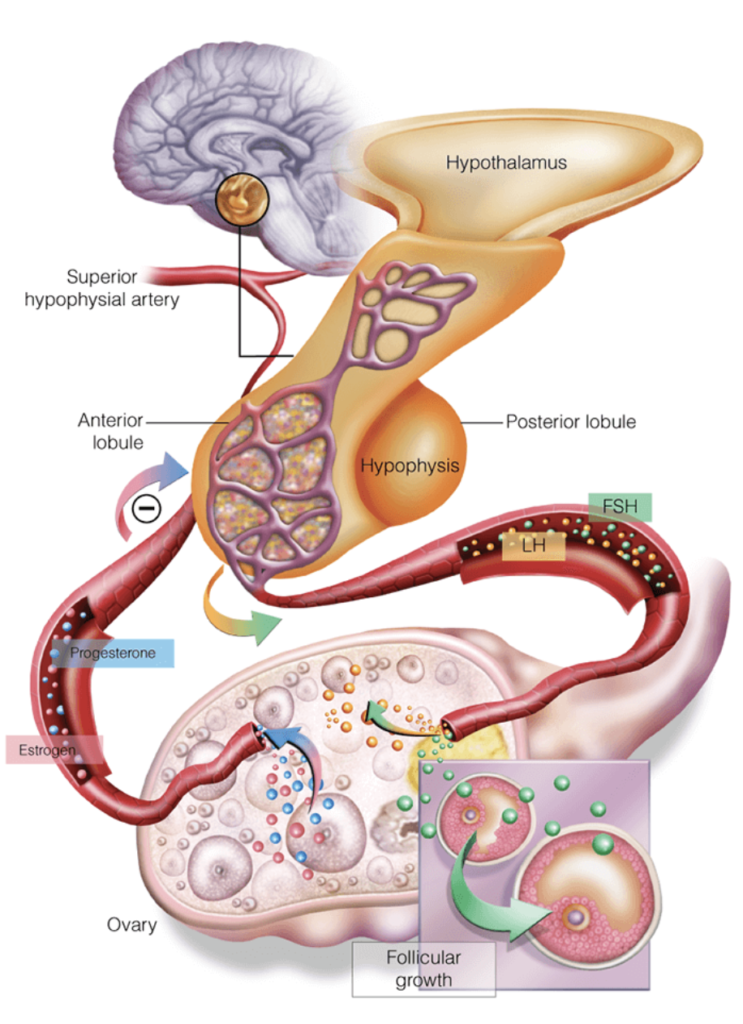 Therefore, some pregnant women put a pin near them to prick a cramped muscle.
Therefore, some pregnant women put a pin near them to prick a cramped muscle.
Causes:
- Leg cramps can be triggered by many factors: deficiency of trace elements, primarily magnesium and calcium, vitamins D and B6, and many others. But the main thing is that an additional burden falls on the woman's body.
- Spasms at night are the result of increased stress on the legs during the day. It is worth paying special attention to women in the "position" on the shoes they wear throughout the day. High heels are absolutely not recommended for pregnant women if they have a predisposition to cramps. Therefore, all doctors advise wearing low-speed shoes: the legs will not be overloaded, and, accordingly, there will be less muscle contractions at night.
- If you have a habit of crossing your legs while sitting on a chair or in an armchair, you should stop it.
- Proper healthy nutrition is a must. Starting from 4 months, it is recommended to rest on the left side so that the condition of the “inferior vena cava syndrome” does not appear.

Help:
- If at any time of the day the leg is "crumpled" - use a pin or needle, lightly prick the muscle.
- A good method is to strain and pull the toe of the leg in which the spasm has developed towards you, sometimes helping with your hands. Repeat several times and try to relax while doing it. And then massage in the place where unpleasant painful sensations arose to restore blood circulation. After that, you can slowly walk around or sit, raising your legs to a dais.
Leg cramps
Leg muscle contractions are not the only ones that can disturb a pregnant woman: during this period of life, the expectant mother also experiences discomfort in her arms.
Causes:
- The main sources of pain are the same as described above: improper and irregular nutrition, lack of useful trace elements, overheating, excessive abuse of diuretic drugs, various diseases and complications of pregnancy, prolonged muscle tension.
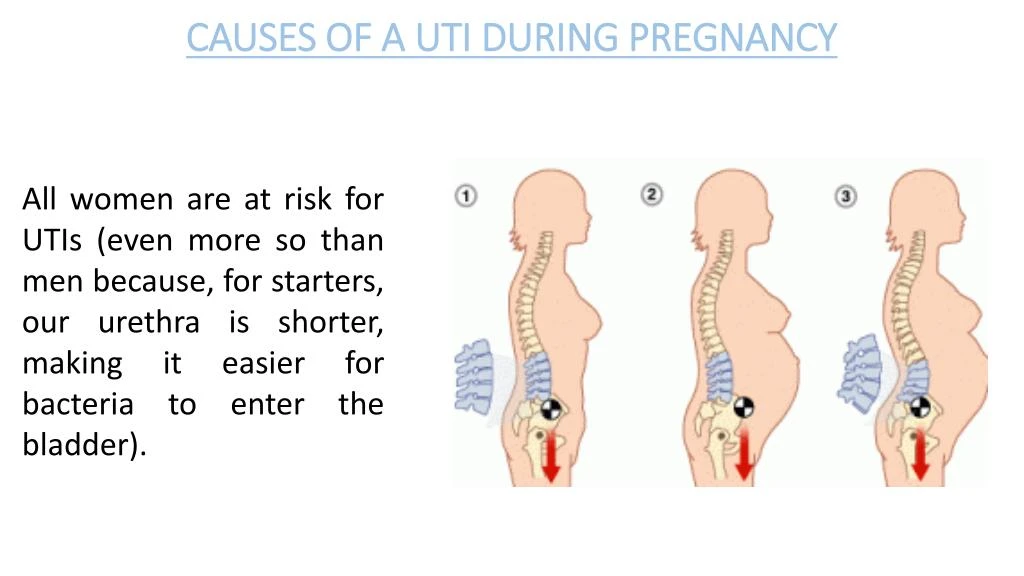
- Women who have the same type of hand movements for a long time are susceptible to such spasms. For example: office workers, musicians, assembly line workers and others. But housewives should also think about how to take care during pregnancy. After all, a long time to cut vegetables or do other homework can lead to painful sensations.
Help:
- If a pregnant woman works all day, it is imperative to plan the work so that her hands can rest. The best option is to alternate work and rest every 15 minutes. Rest is recommended to be combined with light exercises: waving your arms, clenching and unclenching your fists, rotating your hand, shaking your hands.
- Hand massage is an excellent method. It is quite enough to massage problem areas and the result will please you very soon.
If all the above recommendations do not help, be sure to consult your doctors. The possibility of internal diseases should be excluded. For example, symptoms of neuropathy are frequent cramps in the same place, problems with the cardiovascular system - frequent painful cramps in the left arm.
For example, symptoms of neuropathy are frequent cramps in the same place, problems with the cardiovascular system - frequent painful cramps in the left arm.
Abdominal cramps
Abdominal cramps are usually very frightening for a woman, she becomes very nervous and imagines the worst options for herself. But often all the sensations that a pregnant woman takes for cramps are uterine contractions that are inevitable during pregnancy.
- During any period of pregnancy, you should not worry about the above sensations, provided that there are no concomitant signs: bloody or brown discharge, the general condition of the pregnant woman has not worsened, no sudden weaknesses appear throughout the day.
- If seizures occur shortly after conception, the likely cause is the attachment and implantation of a fertilized egg to the uterus. Further, when the fetus is fixed and begins to grow, this may become a factor in abdominal cramps, although not felt by most women.

Attention!
Starting from the 20th week of pregnancy, expectant mothers may experience mild, non-painful cramps: the uterus is preparing for the upcoming birth and is training contractions in advance.
False contractions (the concept was introduced by an English doctor, after his name they are called “Braxton-Hicks contractions”) - completely safe, they do not cause the opening of the cervix, therefore, do not lead to labor. The main signs of Braxton-Hicks contractions are irregularity, unpredictability, short duration and relative painlessness.
Pre-delivery training contractions also occur at earlier dates, but usually the woman does not identify them.
If a pregnant woman notices that the contraction is regular, repeating at regular intervals, accompanied by pain in the back or abdomen, there is a brown spotting discharge, seek medical help immediately. All of the above signs may indicate an increased tone of the uterus and the risk of miscarriage.
Treatment of seizures during pregnancy
The most important thing that a woman expecting a child must do when seizures appear is to contact her gynecologist. The doctor, after consulting with specialists and excluding serious diseases, will give recommendations to reduce or completely stop muscle spasms.
The main recommendation, which will sound from the lips of doctors, is to review the diet of a pregnant woman. It is necessary to add to the menu more foods that are rich in essential nutrients - potassium, magnesium, calcium.
- Potassium
Every cell in the body contains potassium, which is extremely important. Toxicosis, improper use of drugs, excessive consumption of caffeine lead to a lack of this element.
Potassium deficiency is manifested by:
- Convulsions
- Constipation
- Thirst
- Depression and nervousness
- Tachycardia.
Foods rich in potassium: melon, dried apricots, beans, beef liver, bananas, broccoli, potatoes.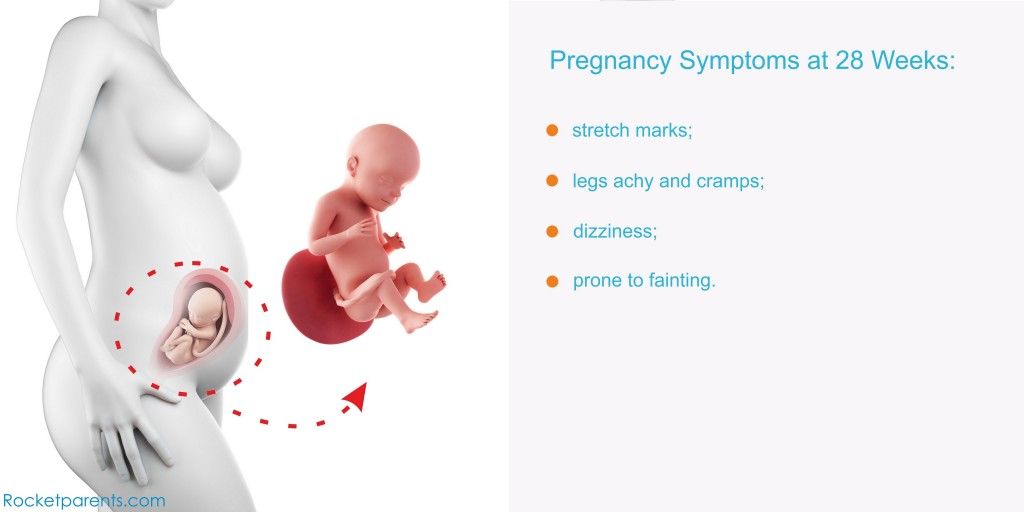
- Calcium
Calcium is one of the most essential minerals for humans.
Calcium deficiency is manifested by:
- Tooth decay
- Cramps
- Insomnia
- Numbness and convulsions
- Nervousness
- Brittle nails.
Sources of calcium - dairy products, asparagus, broccoli, legumes, nuts, cabbage, figs.
- Magnesium
Comprehensive stabilizer of body processes. The need for magnesium during pregnancy increases by 2-3 times.
Magnesium deficiency is manifested by:
- Convulsions
- Decrease in body temperature
- Arrhythmia.
Contained in sunflower seeds, carrots, nuts, legumes, green vegetables.
Painful spasms can be eliminated by massage, a specially selected course of exercises, various ointments and gels. Any medications can be taken only after prescription by specialists.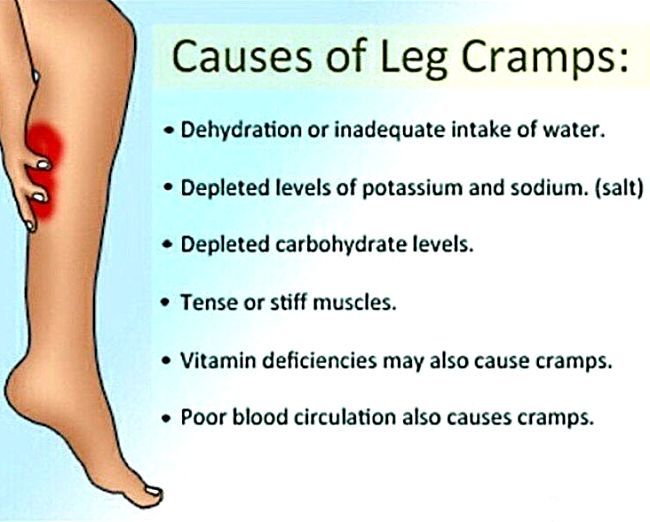
Prevention of seizures
In order to prevent seizures, doctors advise:
- wear comfortable shoes with low, stable heels;
- with a predisposition to the expansion of the superficial veins of the legs, you should wear special designed stockings;
- rest more often with legs elevated;
- if you have to be on your feet for a long time without moving, it is recommended to do simple exercises: rise in turn on your toes, then lower yourself to the foot;
- late pregnancy, try to lie on the left side;
- take contrast showers;
- Relaxing foot baths with warm water and sea salt are recommended before going to bed.
Leg cramps in pregnant women: causes, symptoms and first aid
Number of views: 96 225
Leg cramps in pregnant women: how to deal with this problem? First of all, you need to try to determine the cause.
Symptoms of leg cramps during pregnancy
Leg cramps are painful contractions (spasms) of the calf muscles.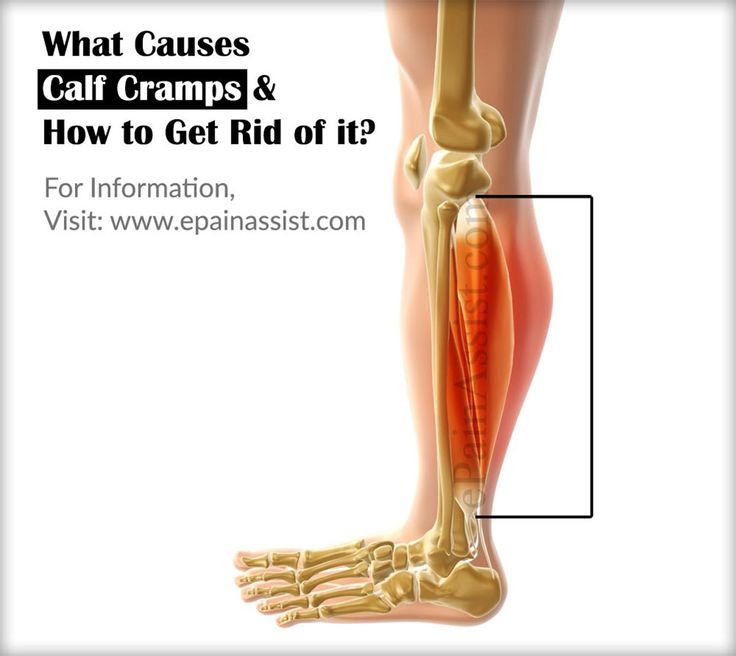 The pain comes on suddenly and seems to permeate the whole body. Depending on the cause, leg cramps in pregnant women can occur at any time of the day.
The pain comes on suddenly and seems to permeate the whole body. Depending on the cause, leg cramps in pregnant women can occur at any time of the day.
Leg cramps in pregnant women: the main causes
The occurrence of leg cramps during pregnancy is most often associated with the following causes:
0113
Deficiency of these elements can be caused by:
- in the first trimester - frequent vomiting associated with toxicosis, as a result of which the body loses a large number of trace elements;
- in the second trimester - an increased need for a large amount of mineral salts due to the active growth of the unborn baby to form his skeletal system;
- excretion in the urine as a result of diuretics not agreed with the doctor;
- unbalanced diet.
2. Anemia
Anemia can result in a lack of oxygen supply needed by the muscles. This can cause leg cramps in pregnant women.
Characteristically, convulsions associated with anemia or a lack of certain trace elements occur at any time of the day.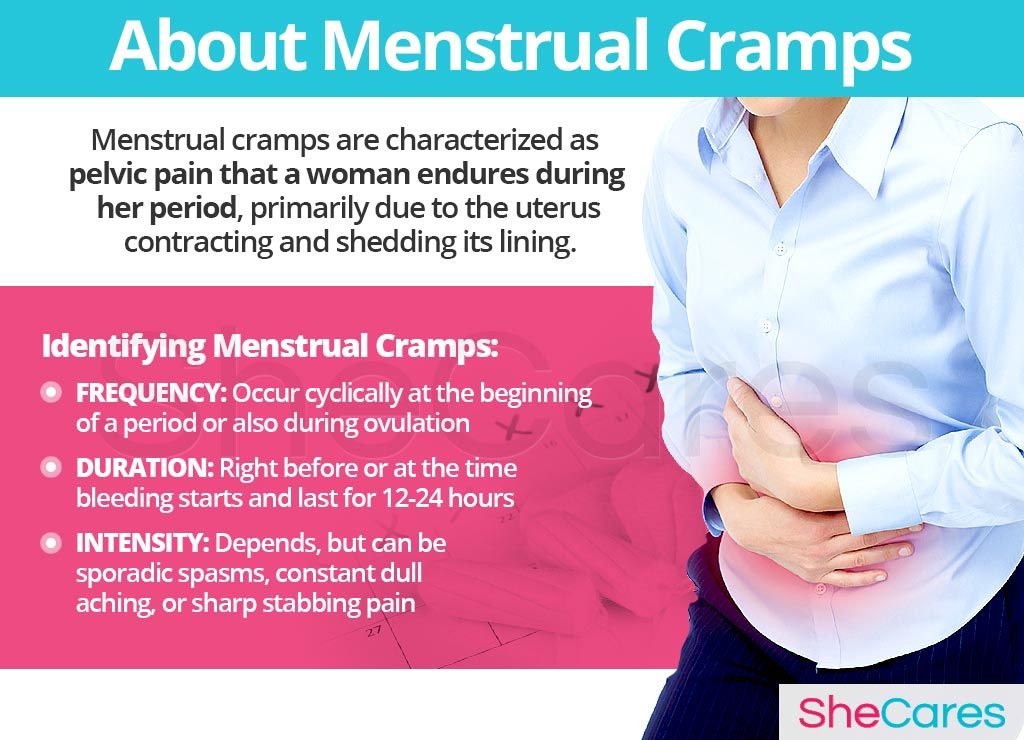
3. Stagnation of blood circulation associated with low mobility
Seizures can be provoked by being in an uncomfortable static position for a long time.
4. Varicose veins
As a result of stagnation of blood in the veins, cramps in the calf muscles may occur. They usually occur at rest: in the evening before bedtime or at night.
5. Reduce blood glucose
Glucose is the body's most important source of energy. A drop in this indicator entails energy starvation of the body, which can provoke leg cramps in pregnant women.
Convulsions associated with this cause are more likely to occur at night or in the early morning.
6. Inferior vena cava syndrome
From the second half of pregnancy, the growing uterus can compress the inferior vena cava, which leads to stagnation of blood in the lower extremities, the development of edema, and as a result, seizures. It is characteristic that leg cramps in pregnant women occur when lying on the back or on the right side.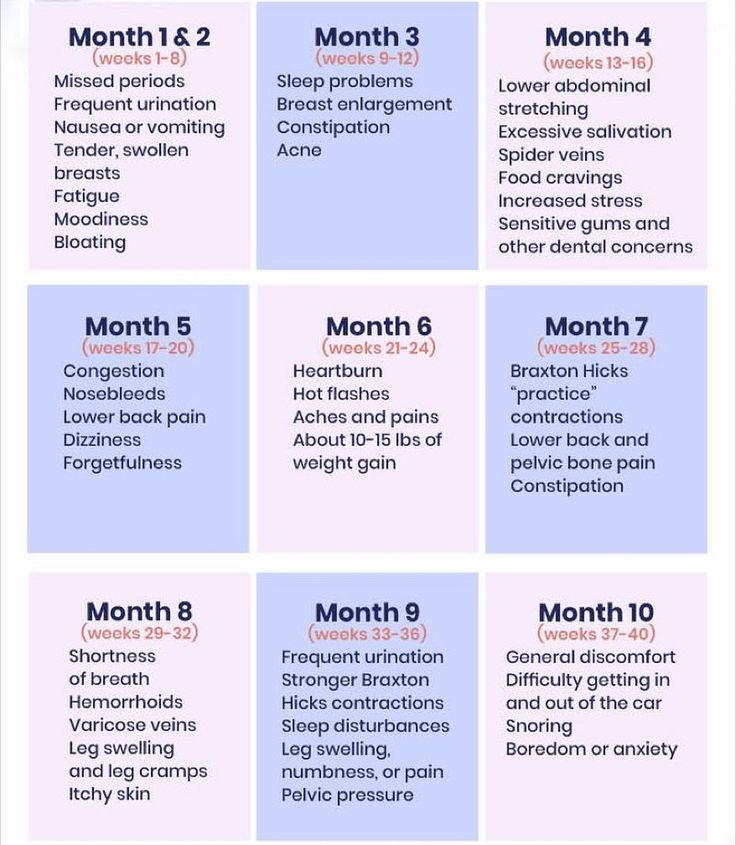
7. Hypothermia
Cold leads to vasoconstriction, thereby causing calf cramps.
8. Dehydration
First aid for cramps
How can you help yourself during a cramp?
- Elevate the leg if possible, slowly but strongly pull the big toe towards you, or pull the whole foot towards you
- Try to breathe deeply and calmly while doing this.
- Helps kneading massage of the calf muscle to warm it up. Involve your loving husband. You can use massage balls or a hand massager. You can press your index finger into the center of the calf muscle for at least 20 seconds
- Pinching and pricking of the calf muscle helps to take your mind off the pain
- You can try a hot shower or heating pad
- After an attack, you can put on stockings or leggings (preferably pre-warmed) to keep the muscles warm and relax better
- Walking barefoot slowly can help, which improves blood circulation in the muscles of the legs
Treating seizures in pregnancy
Be sure to tell your gynecologist if you experience seizures.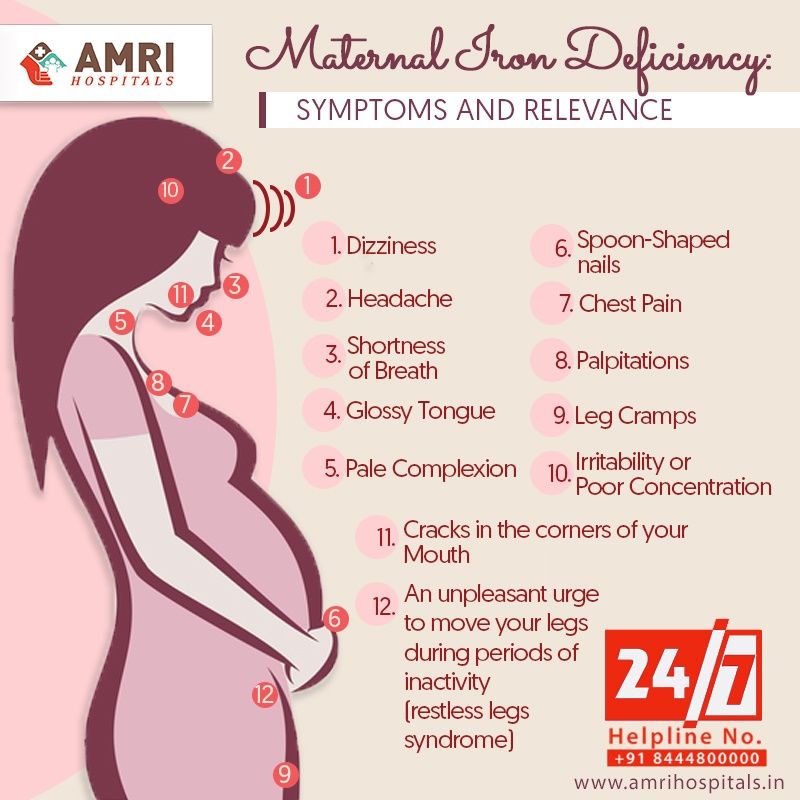 To identify the cause of this pathology, the doctor may prescribe additional laboratory tests, as well as examinations by narrow specialists.
To identify the cause of this pathology, the doctor may prescribe additional laboratory tests, as well as examinations by narrow specialists.
Read in the online magazine: “The best doctors according to moms: voting results”
If necessary, the doctor will prescribe medication, multivitamins for expectant mothers or additional intake of calcium and magnesium supplements. Additional intake of calcium preparations should be agreed with the doctor and stopped after 35 weeks of pregnancy. Never “prescribe” vitamins and supplements to yourself without consulting a doctor!
If the level of glucose in the blood is low, the endocrinologist prescribes drugs to normalize this indicator.
In case of varicose veins, doctors prescribe wearing special compression underwear (socks, stockings or tights) to normalize vascular tone, restore blood flow, relieve swelling, which significantly reduces the risk of seizures. It is very important to choose the right size and degree of compression of prophylactic underwear.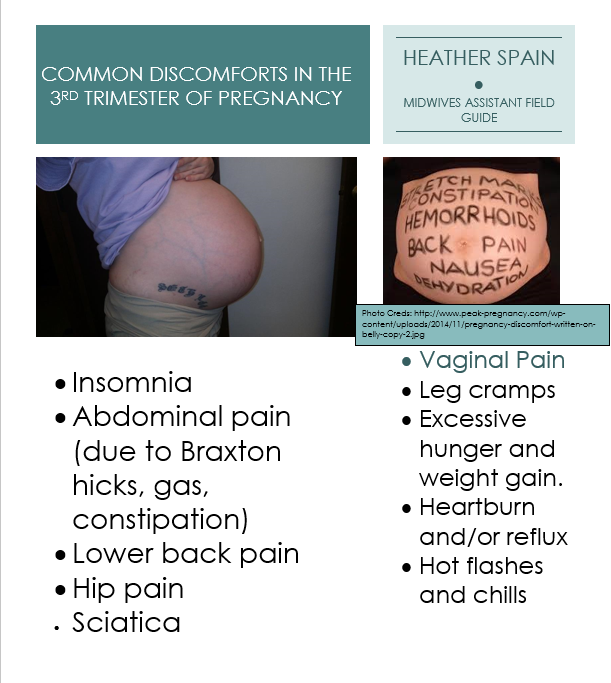
Leg cramps in pregnancy: prevention
The following rules will help the expectant mother to avoid pain caused by cramps:
1. Proper balanced nutrition
- There should be 5-6 small meals per day
- Prefer complex carbohydrates (cereals, durum wheat pasta, fruits and vegetables), try to limit "light" carbohydrates (sweets, starchy foods)
- Include in your diet plenty of foods rich in calcium (low-fat dairy products and milk, nuts, eggs, various types of cabbage), magnesium (nuts, seeds, legumes, fish, chicken, broccoli, carrots, spinach, raisins), potassium (bananas , potatoes, salmon, tomatoes, dried apricots, raisins, spinach, oranges, lean beef), B vitamins (dairy products, walnuts, red fish).
2. Reasonable physical activity
Reasonable and dosed physical activity will help improve blood circulation and prevent venous congestion. An excellent remedy for the prevention of seizures is the pool.